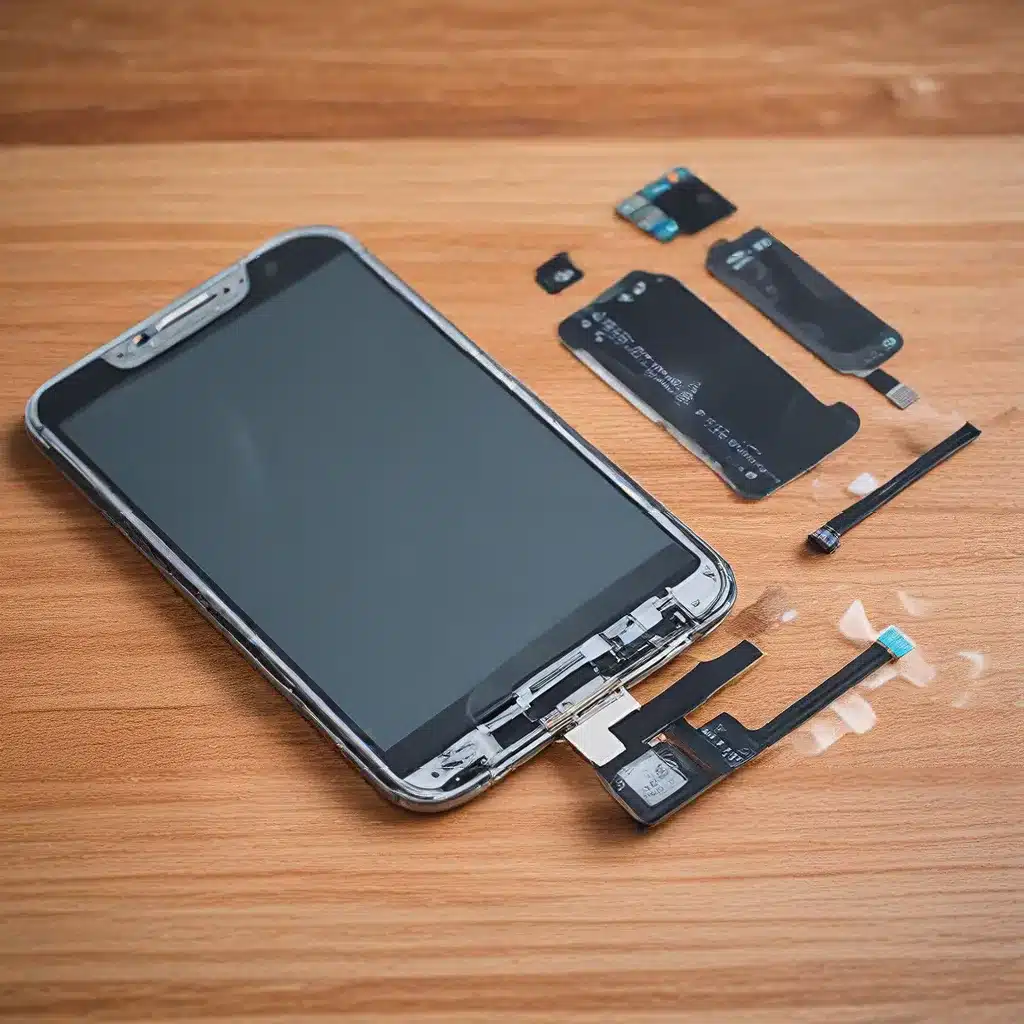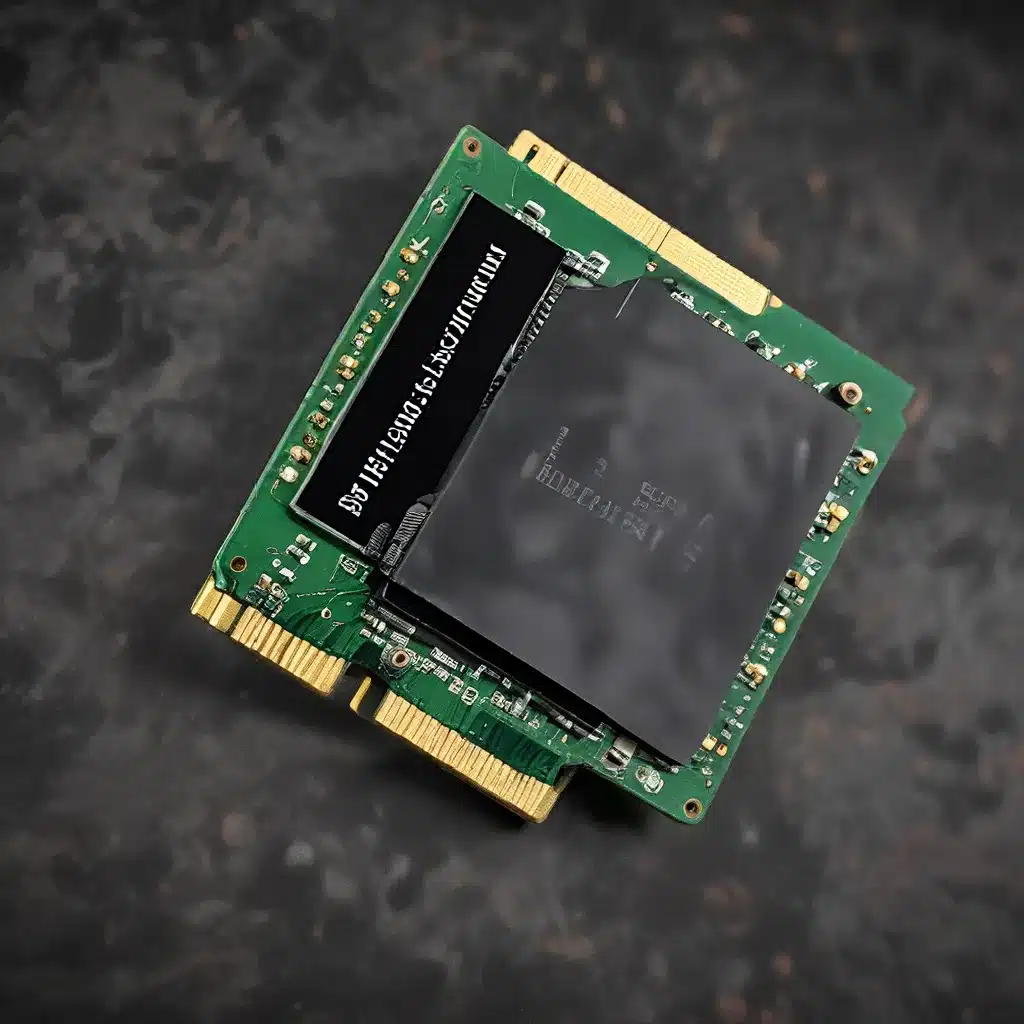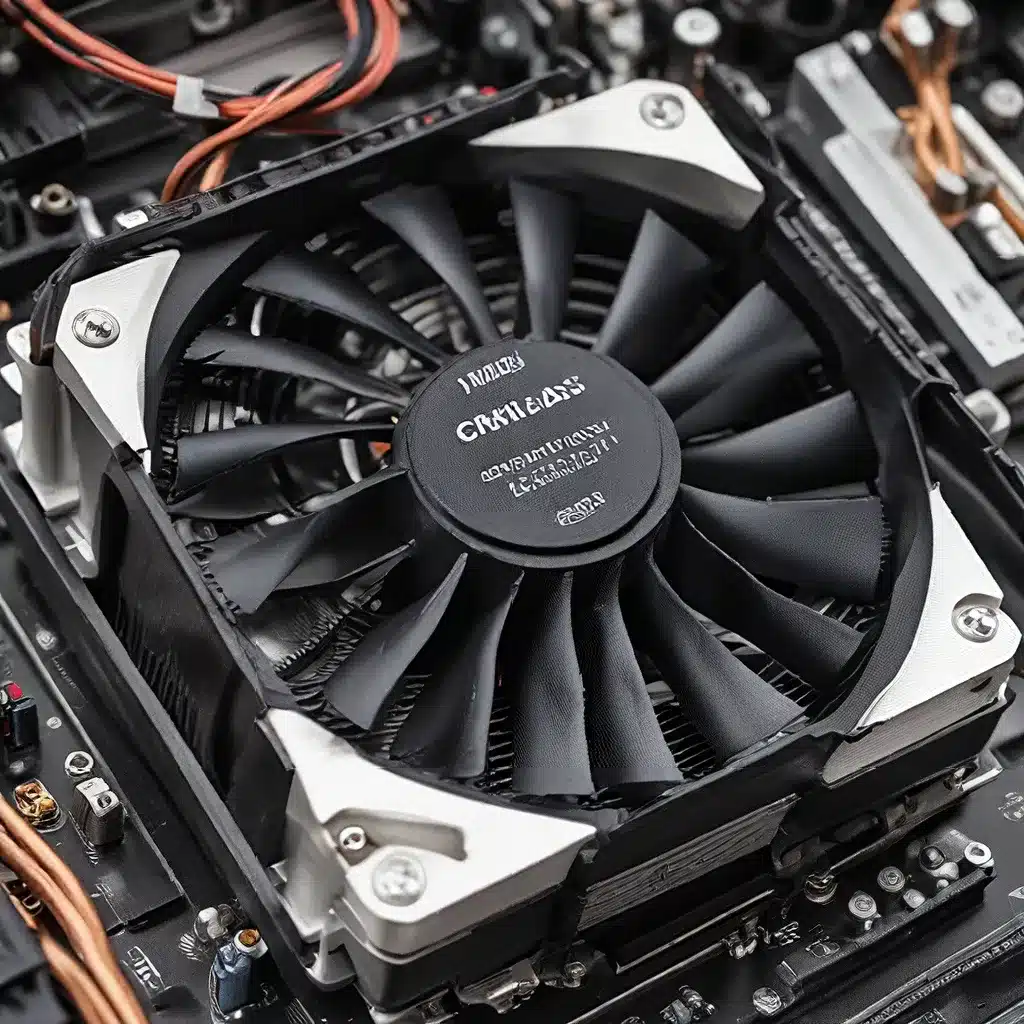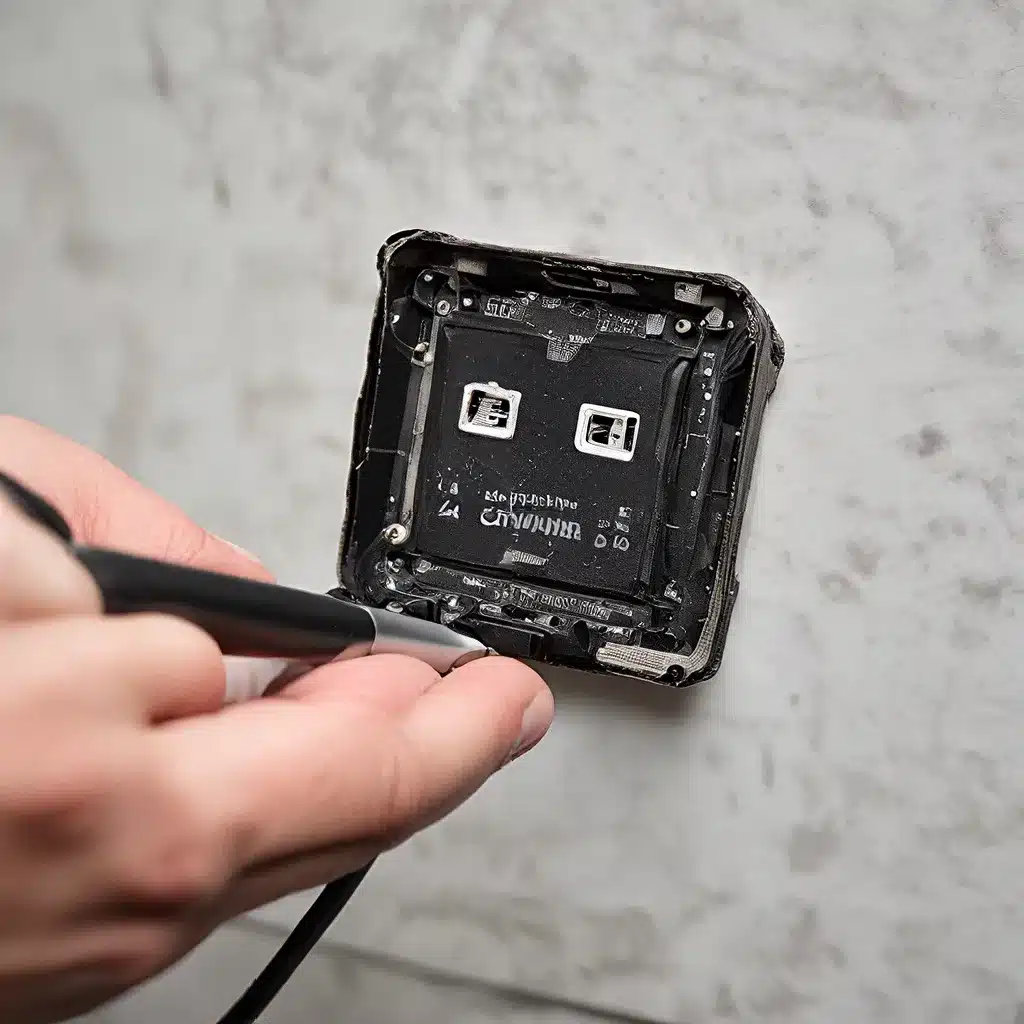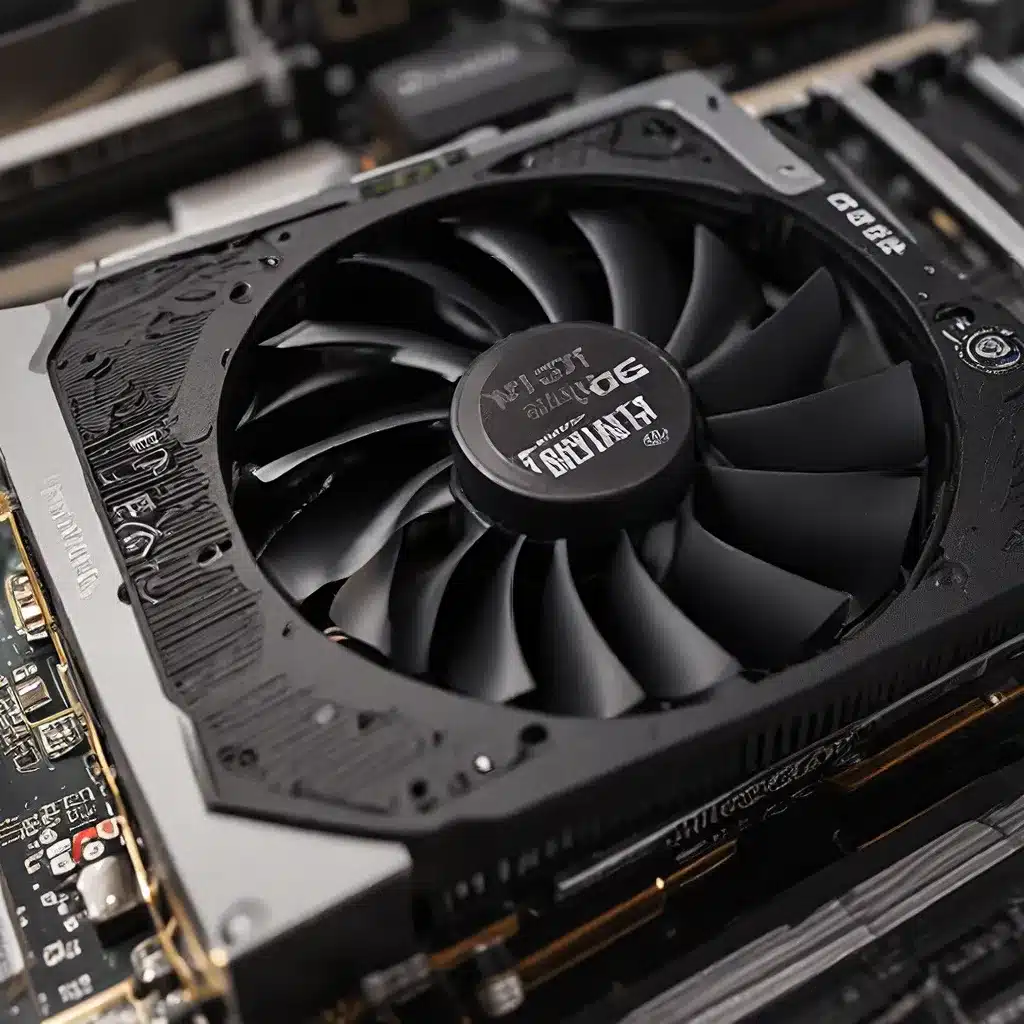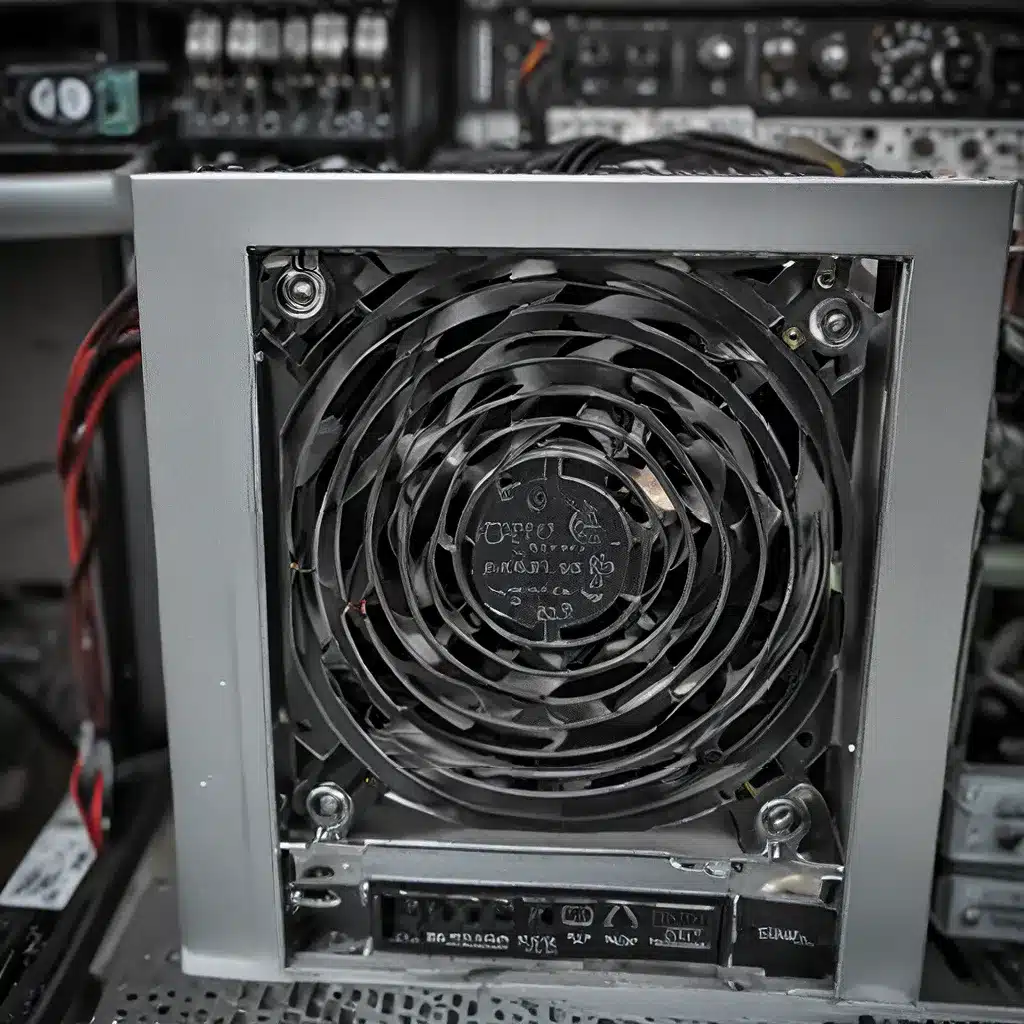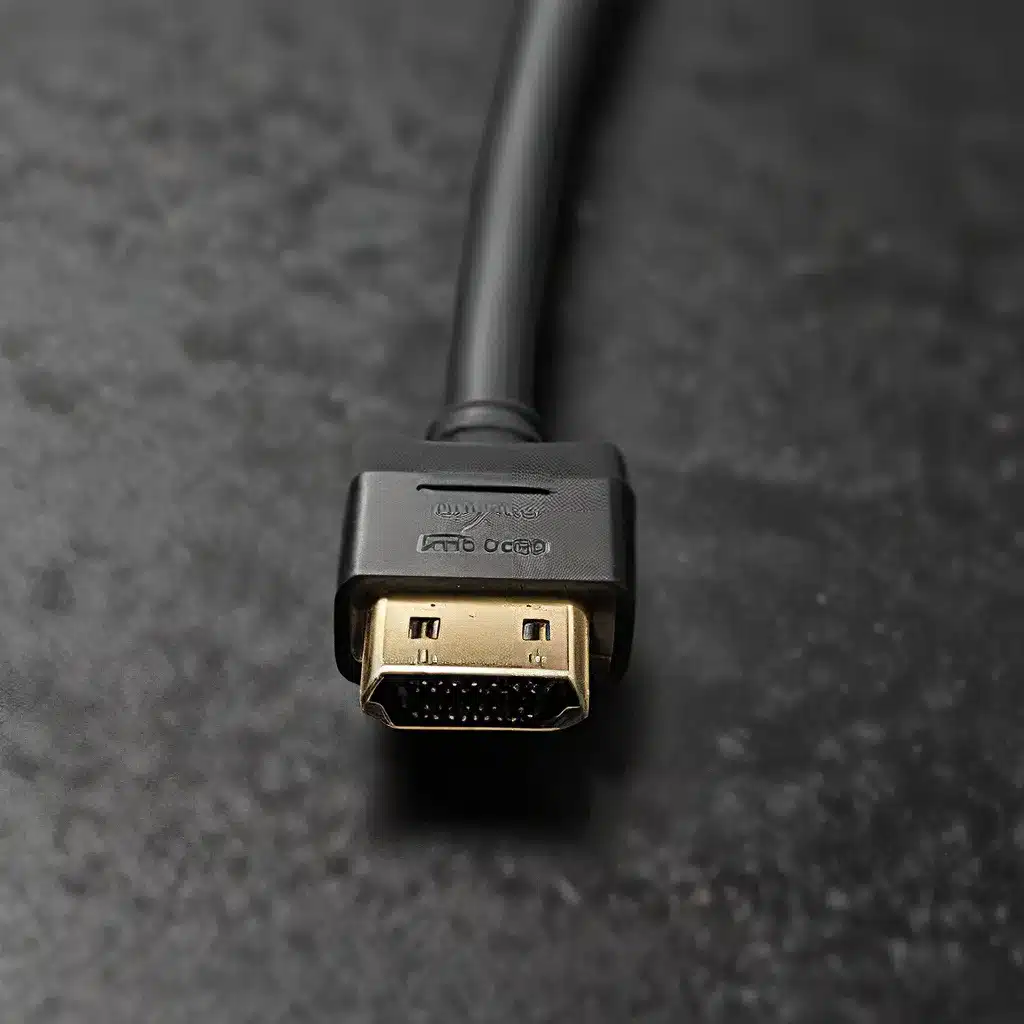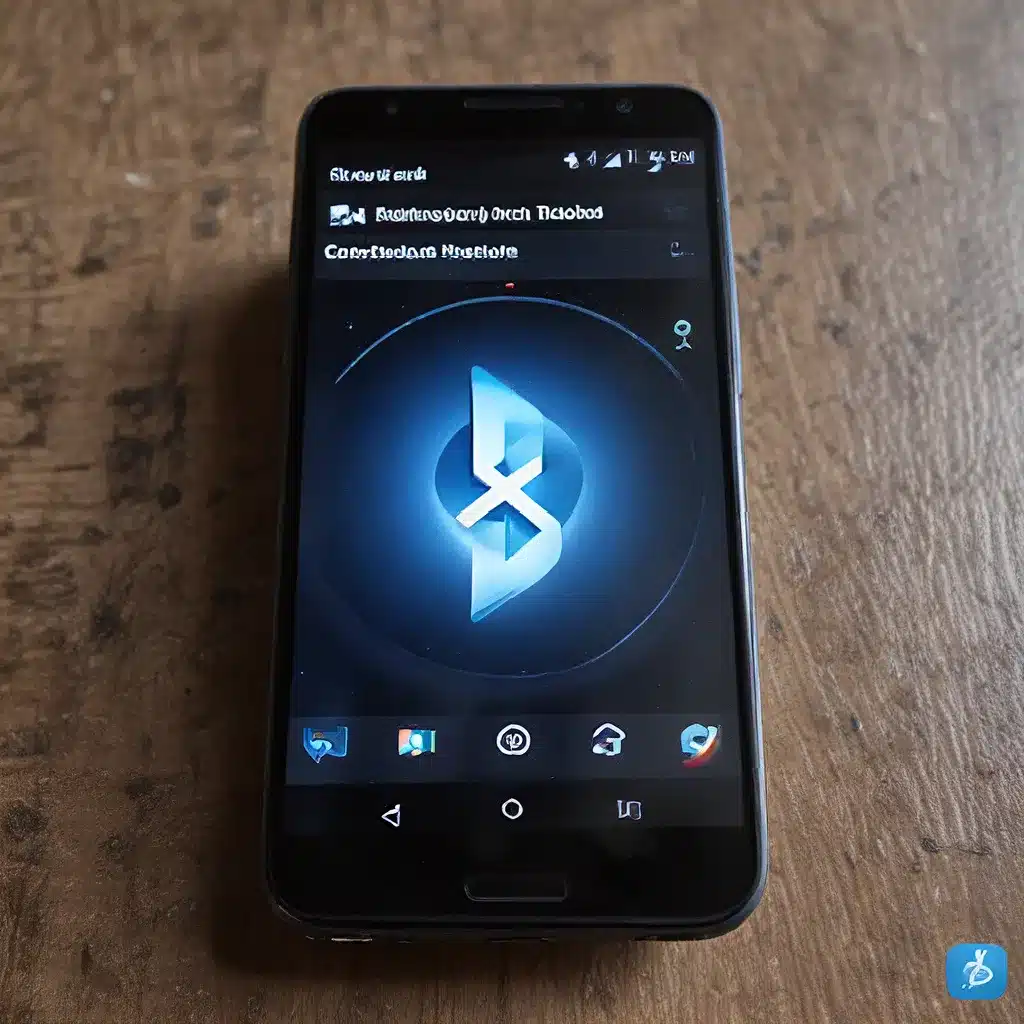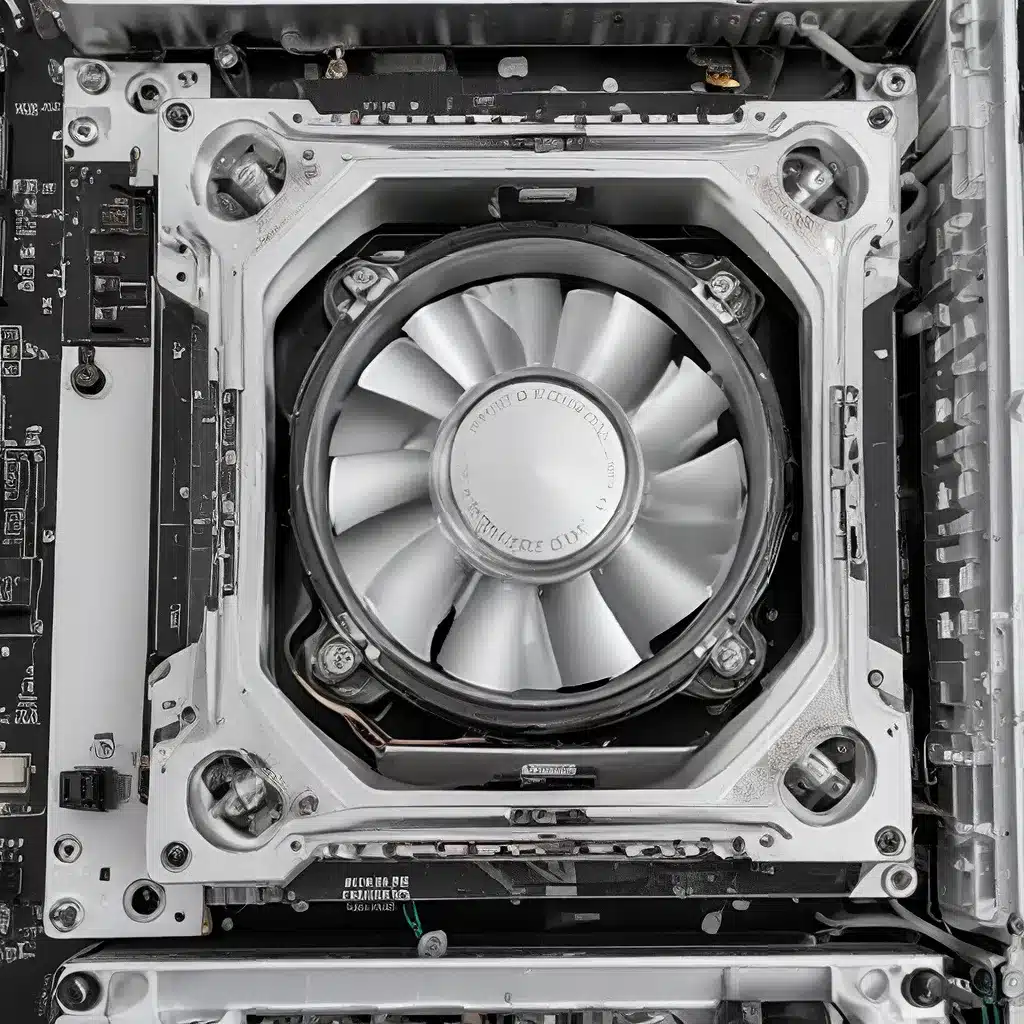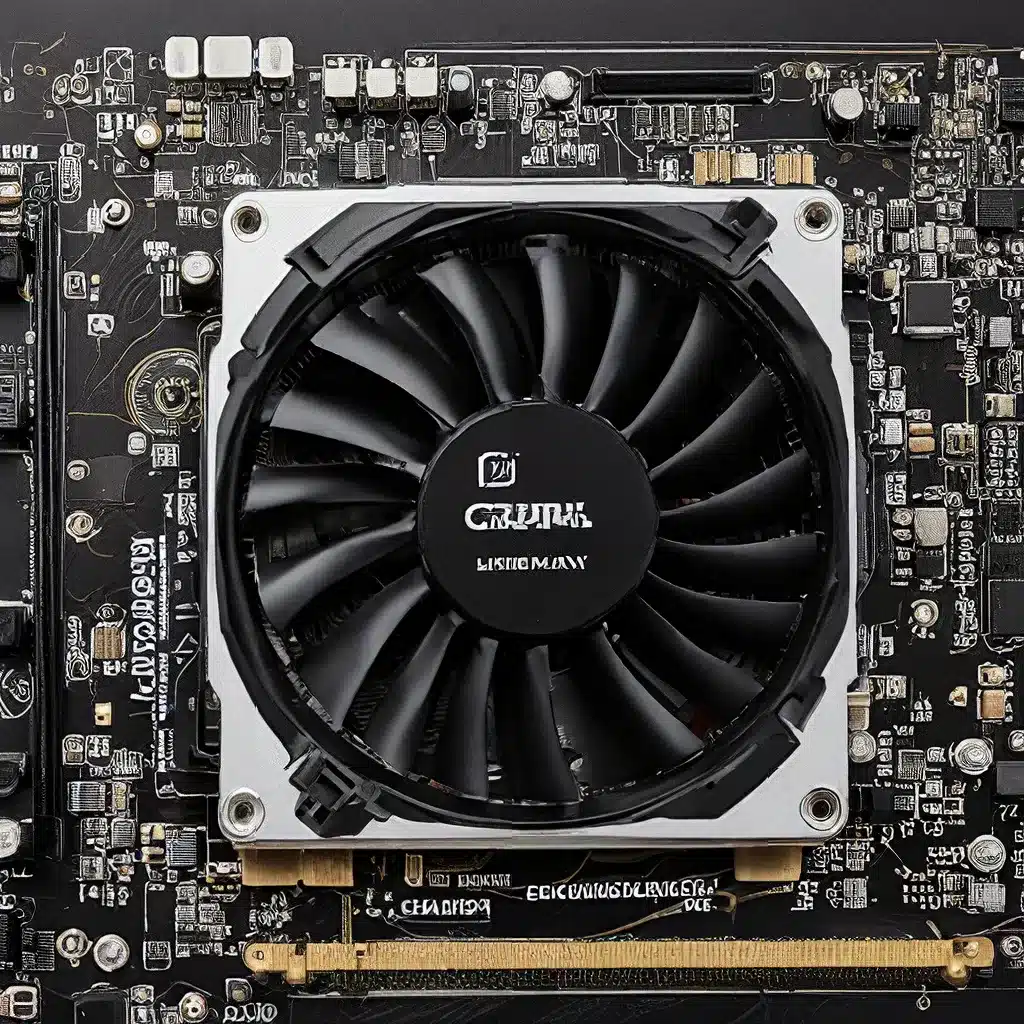Hacking Away at Your Hardware? Not So Fast!
As a self-proclaimed computer whiz, I’ve seen it all – from friends frantically wiping coffee off their keyboards to colleagues bemoaning the sudden disappearance of their precious files. Computers can be finicky beasts, and treating them with anything less than the utmost care can lead to some pretty disastrous consequences.
That’s why today, I’m here to share 9 things you should never, ever do to your computer. Trust me, these lessons come straight from the frontlines of tech support. So, grab a pen and paper (or your trusty digital notes app) and get ready to protect your precious machine from harm.
1. Don’t Go Vinegar-Crazy on Your Screens
Look, I get it – vinegar is the holy grail of natural cleaners. It can cut through grime, kill bacteria, and leave your surfaces sparkling. But when it comes to your computer screens, both LCD and touchscreen, you’ll want to steer clear of that tangy-smelling solution. [1]
As it turns out, the acidity in vinegar can actually damage the anti-glare and anti-fingerprint coatings on your screen, making it more prone to annoying reflections and smudges. And if you have a touchscreen, the vinegar could even make the screen less responsive to your taps and swipes. Not exactly the tech-savvy experience you’re going for, right?
Instead, use a soft, microfiber cloth to gently wipe down your screens. If you need a little extra cleaning power, a damp (not dripping wet!) cloth with a bit of water will do the trick. Just be sure to avoid using any harsh chemicals or cleaning products – you don’t want to end up with a screen that’s more cloudy than clear.
2. Don’t Let Vinegar Near Your Iron
I know, I know – I just can’t stop talking about vinegar. But hear me out on this one, because it could save you a whole lot of headache (and money) down the line. [1]
Many steam irons have a protective coating inside the chamber, and that acid in vinegar? Yeah, it can eat away at that lining and start corroding the metal parts. Before you know it, you’ve got a leaky, sputtering iron that’s about as useful as a paperweight.
The best way to keep your iron in tip-top shape is to follow the manufacturer’s cleaning instructions. Most of the time, that just means filling the tank with water, heating it up, and letting the steam work its magic. Easy peasy, and no vinegar required.
3. Don’t Let Vinegar Touch Your Stone Countertops
Alright, one more vinegar warning and then I’ll move on, I promise. This time, it’s about your kitchen countertops. [1]
If you’ve got natural stone surfaces like marble or limestone, you’ll want to keep that vinegar far, far away. The acid in vinegar can slowly dissolve and etch these delicate stones, leaving them dull and discolored. And even for more durable stones like granite, the vinegar can break down any sealers that have been applied to protect the surface.
Instead, stick to mild detergents and plastic scrub pads when cleaning your stone countertops. And if you’ve got a stubborn stain or buildup, it’s best to call in a professional to handle it properly.
4. Don’t Expect Vinegar to Work Miracles on Your Dishwasher
Speaking of cleaning, you might have heard that running a bowl of vinegar through your dishwasher can help banish hard water stains and lingering odors. But I’m here to burst that bubble – it’s just not that effective. [1]
Our expert dishwasher tester, Larry Ciufo, puts it bluntly: “It didn’t do a thing.” Turns out, the acid in vinegar can actually eat away at the rubber parts inside your dishwasher, potentially causing leaks and other issues down the line.
Luckily, there are specialized dishwasher cleaners out there that are specifically formulated to tackle those stubborn deposits and smells. Brands like Affresh and Finish have top-notch products that’ll leave your dishwasher sparkling without any risk of damage.
5. Don’t Let Vinegar Touch Your Electronics
Alright, I promise this is the last vinegar warning. But it’s an important one, so listen up! [1]
When it comes to your precious electronic devices – think laptops, tablets, smartphones, and even your TV screen – vinegar is a big no-no. That acidic solution can wreak havoc on the anti-glare coatings and touchscreen responsiveness, making your devices look and function worse than before.
Instead, stick to a soft, microfiber cloth and a bit of plain water to gently wipe down those screens. If you’ve got a stubborn smudge or stain, you can try a small amount of dish soap diluted in water, applied to the cloth rather than directly onto the screen.
6. Don’t Let Vinegar Near Your Hardwood Floors
Alright, let’s move on from our vinegar-fueled cautionary tales and talk about something else that can do a number on your home: hardwood floors. [1]
Much like with natural stone countertops, the acidity in vinegar can slowly dissolve and dull the finish on your beautiful hardwood floors. Over time, you’ll start to notice a cloudy, scratched appearance that just won’t go away.
The best way to keep your floors looking their best is to follow the manufacturer’s cleaning recommendations, which typically involve using a specialized hardwood floor cleaner or a mild, pH-neutral detergent. And if you’re ever unsure, it’s always better to err on the side of caution and avoid using vinegar altogether.
7. Don’t Use Vinegar to Clean Your Kitchen Knives
Alright, let’s move on from our vinegar-fueled cautionary tales and talk about something else that can do a number on your home: your trusty kitchen knives. [1]
You see, that acidic vinegar can actually start eating away at the finish and edge of your knife blades, leaving them pitted and dull over time. And we all know how important it is to have razor-sharp knives in the kitchen, right?
Instead of vinegar, stick to good ol’ warm water and a mild dish soap when cleaning your cutlery. This gentle approach will keep your blades in tip-top shape, ready to tackle any culinary challenge that comes your way.
8. Don’t Expect Vinegar to Tame Grease and Grime
I know, I know – I’ve spent a lot of time warning you about the perils of vinegar. But there’s a good reason for that! This natural cleaning marvel just isn’t up to the task when it comes to certain household messes. [1]
Take greasy stovetops and ovens, for example. The acidity in vinegar doesn’t do much to cut through that stubborn, baked-on grime. In fact, it might even make the problem worse by spreading the oil around.
For those tough, grease-laden cleaning jobs, you’re better off reaching for a degreasing cleaner specifically formulated for the task. Or, if you’re feeling extra industrious, try a baking soda paste. The gentle abrasiveness of the baking soda can help break down that gunk without damaging your appliances.
9. Don’t Let Vinegar Destroy Your Washing Machine
Last but not least, let’s talk about your trusty washing machine. You might have heard that adding a bit of vinegar to your laundry can help freshen things up or remove stains. But before you start pouring that stuff in, you’ll want to think twice. [1]
You see, the acid in vinegar can actually damage the rubber seals and hoses in your washing machine, potentially leading to leaks and other costly issues down the line. And if you’ve got a front-loading washer, those rubber parts are even more vulnerable to the vinegar’s corrosive effects.
Instead of taking the vinegar risk, stick to the tried-and-true laundry stain removers and detergents that are designed to work seamlessly with your machine. Your wallet – and your floor – will thank you.
Well, there you have it – 9 things you should never, ever do to your beloved computer and other household gadgets. From vinegar-fueled disasters to knife-sharpening mishaps, these cautionary tales are sure to save you a world of trouble (and money) in the long run.
So, the next time you’re tempted to try some DIY cleaning hack, just remember: your computer, appliances, and even your kitchen knives deserve a little TLC. Treat them right, and they’ll keep humming along happily for years to come.


